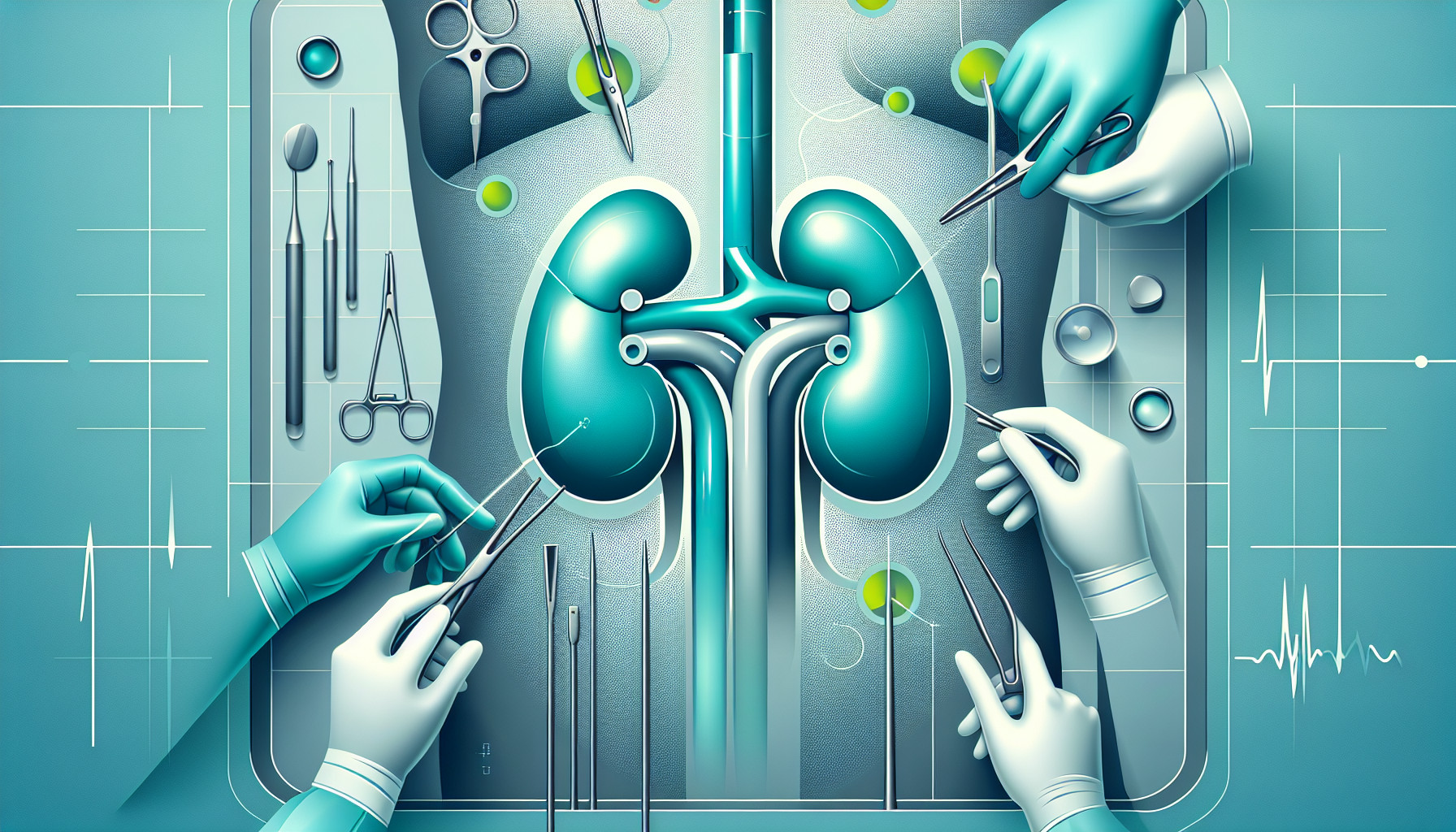Our Summary
This research paper discusses the treatment and post-care for patients who have undergone kidney transplantation. Replacing a kidney through transplantation often yields a better quality of life and lower mortality rates compared to remaining on dialysis, making it the best option for most kidney failure patients. After the initial six months of post-transplant care, which is usually overseen by specialist doctors, general kidney doctors and internists often take over the patient’s care. Managing the health of someone who has had a kidney transplant can be difficult due to potential drug interactions, which may cause harm to the patient or the new kidney. Other complications can arise from infections and cancers related to long-term use of immunosuppression drugs (which patients need to take to prevent their body from rejecting the new kidney). The paper reviews how these immunosuppression drugs work, the different types of rejection that can occur, complications from recurrent disease, common infections, and other non-kidney related complications that are often seen in kidney transplant patients.
FAQs
- What is the optimal treatment for kidney failure for most patients?
- What are some common complications that kidney transplant recipients may encounter?
- How does a kidney transplant impact a patient’s quality of life and mortality compared to remaining on dialysis?
Doctor’s Tip
One helpful tip a doctor might tell a patient about kidney transplant is to closely follow the medication regimen prescribed by their healthcare team. This includes taking immunosuppressant medications as directed to prevent rejection of the transplanted kidney. It is important to attend all follow-up appointments and communicate any concerns or changes in health to the medical team promptly. Maintaining a healthy lifestyle, including regular exercise and a balanced diet, can also help support the success of the transplant.
Suitable For
Patients who are typically recommended for kidney transplant include those with end-stage renal disease (ESRD) who are not responding well to dialysis, have a good prognosis, and are able to comply with the post-transplant medication regimen. Candidates for kidney transplant are evaluated based on various factors including age, overall health, presence of other medical conditions, and psychosocial support.
Patients with certain conditions such as diabetes, hypertension, polycystic kidney disease, and autoimmune diseases like lupus are common candidates for kidney transplant. Additionally, patients who have a living donor match or are willing to be placed on the deceased donor waiting list are also recommended for kidney transplant.
It is important for patients to undergo a thorough evaluation by a transplant team to determine their eligibility for kidney transplant and to discuss the risks and benefits of the procedure. Overall, kidney transplantation is considered the optimal treatment for most patients with ESRD, as it can significantly improve quality of life and long-term survival.
Timeline
Before kidney transplant:
- Patient is diagnosed with end-stage renal disease (ESRD) and is on dialysis
- Patient undergoes evaluation to determine eligibility for kidney transplant
- Patient is placed on the transplant waiting list
- Patient undergoes pre-transplant testing and evaluation
- Patient finds a suitable donor (living or deceased)
- Kidney transplant surgery is performed
After kidney transplant:
- Patient is closely monitored in the hospital for complications post-surgery
- Patient is discharged from the hospital and continues to be closely monitored by healthcare providers
- Patient is prescribed immunosuppressive medications to prevent rejection of the transplanted kidney
- Patient undergoes regular follow-up appointments and testing to monitor kidney function and medication levels
- Patient is at risk for infections, rejection, and other complications related to immunosuppression
- Patient may experience improvements in quality of life and mortality compared to remaining on dialysis
Overall, kidney transplant recipients require lifelong medical management and monitoring to ensure the success of the transplant and prevent complications.
What to Ask Your Doctor
- What is the process for getting on the kidney transplant waiting list?
- How long is the average wait time for a kidney transplant?
- What are the risks and benefits of kidney transplantation compared to remaining on dialysis?
- What type of immunosuppressant medications will I need to take after the transplant?
- What are the potential side effects of these medications?
- How often will I need to follow up with a nephrologist or transplant specialist after the transplant?
- What are the signs and symptoms of rejection that I should watch out for?
- What lifestyle changes will I need to make after the transplant?
- How can I reduce my risk of infections after the transplant?
- What is the long-term outlook for kidney transplant recipients in terms of complications and overall health?
Reference
Authors: Voora S, Adey DB. Journal: Am J Kidney Dis. 2019 Jun;73(6):866-879. doi: 10.1053/j.ajkd.2019.01.031. Epub 2019 Apr 11. PMID: 30981567
